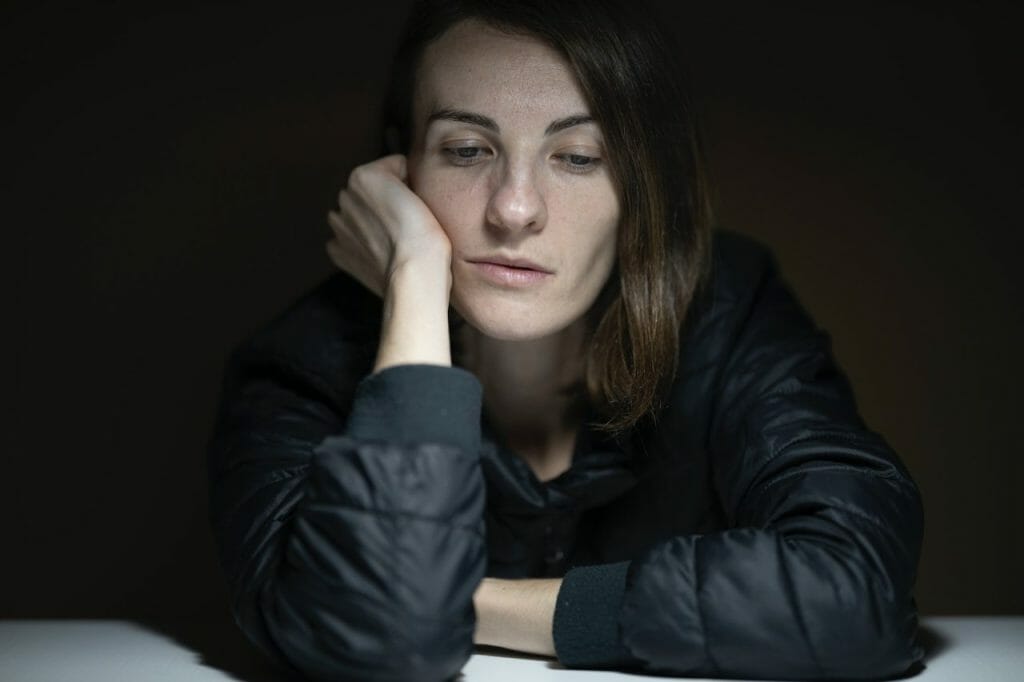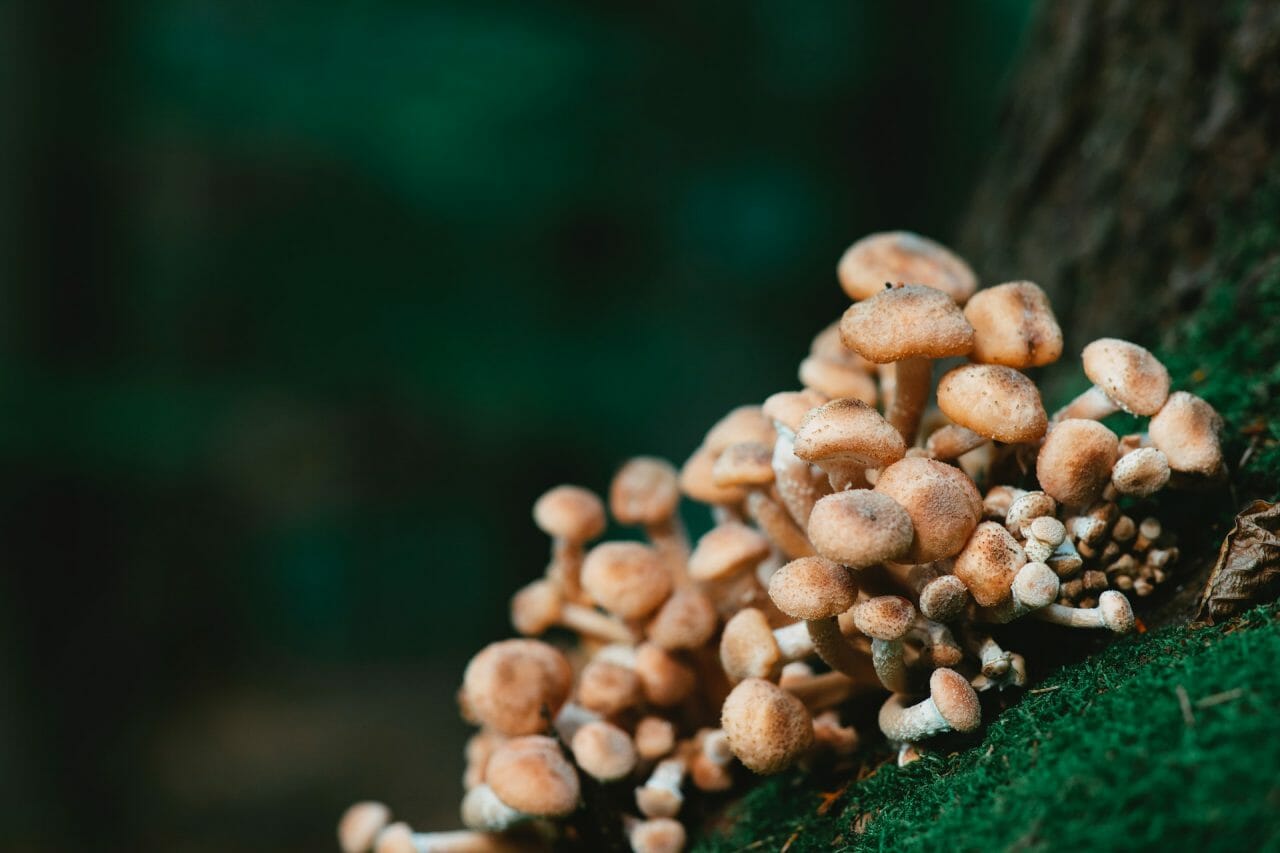The World Health Organization (WHO) reports that over 264 million people around the world suffer from depression.
Despite the effectiveness of conventional treatments, they often fall short in addressing the complex nature of depression. This issue has spurred a growing interest in alternative therapies, one of which involves the use of psilocybin-rich mushrooms obtained from a mushroom dispensary, to treat depression.
Let’s delve into the world of mushroom dispensaries and examine their role in depression therapy, backed by fascinating statistics that underscore their potential to revolutionize our approach to this major global mental health concern.
Main Takeaways:
- Mushroom dispensaries offer alternative treatments for depression through the use of psilocybin-rich mushrooms.
- Research suggests that psilocybin can produce significant and long-lasting reductions in depression symptoms.
- Psilocybin therapy is part of a new trend that is reshaping the mental health care landscape.

Understanding Psilocybin and Its Therapeutic Potential
Psilocybin is a naturally occurring compound found in certain mushroom species, commonly referred to as “magic mushrooms.” When consumed, the body converts psilocybin into psilocin, which influences the brain’s serotonin receptors. This process induces significant perceptual, mood, and consciousness alterations typically linked with psilocybin consumption.
Studies exploring psilocybin’s potential as a depression treatment have yielded remarkable findings. Clinical trials show that a single, well-supervised dose of psilocybin can result in substantial reductions in depressive symptoms. Participants have reported long-lasting, transformative effects on their mental health and overall well-being.
These findings have driven a surge in interest and funding to further investigate psilocybin as a novel treatment option for depression, especially for those who haven’t achieved success with conventional therapies.
Encouraging Results from Magic Mushroom Therapy for Depression
DispensariesMagic mushrooms, also known as psilocybin-containing mushrooms, are gaining attention for their potential to alleviate depression symptoms. Let’s explore the various types of magic mushrooms and the potential impact they could have on depression.
| Magic Mushroom Type | Description | Potential Depression Benefits |
| Golden Teacher | A renowned psilocybin mushroom identified by its golden cap. | It might help reduce depressive symptoms and enhance emotional well-being. This species can foster introspection and self-reflection, potentially helping individuals gain new insights into their depression. Some users experience feelings of unity and interconnectedness, which can counteract the feelings of isolation often associated with depression. |
| Psilocybe Cubensis | One of the most common magic mushroom species. | It is reported to induce positive mood changes and altered life perspectives. It may promote emotional processing and help individuals confront their depression’s root causes. The shift in consciousness it triggers could help users break free from entrenched thought patterns and foster a more optimistic outlook. |
| B+ | Recognized by its large, bulbous fruiting bodies. | It could result in significant and enduring reductions in depressive symptoms. Users often report gaining a clearer understanding of their emotions and life circumstances. The therapeutic journey may help in releasing suppressed emotions and trauma, thereby providing relief from depression. |
| Liberty Cap | Small, conical mushrooms found in various regions. | They’re known to create intense emotional experiences that can help alleviate depression. During Liberty Cap trips, users report heightened sensitivity and empathy, which can foster emotional healing and connection. The immersive and profound nature of the psychedelic journey may help individuals understand the root causes of their depression. |
| Penis Envy | Noted for its unique, phallic-like shape. | Associated with deep insights and changes in depressive thinking patterns. Users often report experiencing ego dissolution, allowing them to confront their depression without their usual identity constraints. The intensity of the experience might facilitate therapeutic breakthroughs, resulting in lasting improvements in mental health. |
| Blue Meanie | A powerful strain distinguished by its bluish hue. | This hue is believed to induce a sense of calm and relaxation, potentially reducing symptoms associated with anxiety and depression. A number of users have reported experiencing inner peace and emotional release during their encounters with Blue Meanie, which could potentially enhance mental health. This strain is known for its mild yet introspective qualities, making it potentially suitable for those seeking a less intense psychedelic experience for therapeutic purposes. |
The Role of Magic Mushroom Dispensaries in Depression Therapy
Magic mushroom dispensaries play a critical role in depression treatment by offering a controlled and regulated environment for those exploring potential therapeutic options.
The Function of Health Canada
In Canada, Health Canada is the federal entity responsible for ensuring the safety, efficacy, and quality of therapeutic goods, such as the psilocybin found in magic mushrooms.
Approval of Therapeutic Substances
Health Canada has recently granted exemptions and approvals for the use of psilocybin in certain clinical and research contexts for specific health conditions, including depression. This shift in policy reflects growing recognition of the potential therapeutic uses of psilocybin.
Potential Therapeutic Uses
Magic mushroom dispensaries provide a potentially innovative and effective therapeutic avenue for individuals battling depression. Given the appropriate authorization and under certain conditions, individuals can explore psilocybin therapy to alleviate symptoms of depression.
A Supervised and Controlled Environment
Magic mushroom dispensaries provide a monitored and controlled environment for those pursuing psilocybin therapy, ensuring the experience is conducted safely under the supervision of skilled professionals.
Compliance with Health Canada Regulations
Dispensaries are obligated to adhere to Health Canada’s rules and guidelines when providing psilocybin-based products for therapeutic uses. They play a crucial part in ensuring adherence to regulations and that therapy is conducted responsibly and ethically.
Guidance for Navigating Psilocybin Therapy at a Mushroom Shop
Embarking on psilocybin therapy at a mushroom shop could potentially be a transformative and beneficial experience. However, it’s essential
Proceed with due diligence and mindfulness. Here are some recommendations for navigating this process:
- In-depth Study: Begin by carrying out an extensive research on psilocybin therapy and the specific mushroom store you intend to visit.
- Seek Expert Guidance: Before contemplating psilocybin therapy, consult with a mental health professional or therapist who specializes in psychedelic-assisted treatments. They can assess your suitability for this therapy and provide useful guidance.
- Choose a Trustworthy Store: Verify the store’s reputation through reviews, testimonials, and evidence of compliance with local regulations.
- Understand the Process: Familiarize yourself with the entire therapy process, from preparation and the psychedelic journey to post-experience integration. Being well-informed about what to expect can reduce anxiety and enhance therapeutic outcomes.
- Prepare Mentally and Emotionally: Prepare yourself mentally and emotionally for the experience. Set clear intentions for your therapy session and be ready to confront any challenging emotions or thoughts that may emerge.
- Secure a Safe Environment: Ensure that the mushroom store provides a secure and comfortable environment for your therapy session, including appropriate lighting, music, and the presence of trained facilitators for assistance if needed.
- Follow Dosage Guidelines: Adhere to the dosage recommendations from the mushroom store or your healthcare provider. Avoid self-administration or use of unfamiliar substances, as this could be dangerous.
Conclusion
Mushroom stores offering psilocybin therapy are emerging as a promising alternative for treating depression. Despite the diverse legal and regulatory landscapes surrounding these establishments, a growing body of research and practical experiences highlight their potential to alleviate depressive symptoms and provide individuals with new perspectives on their mental health.
As the field of psychedelic-assisted therapy continues to evolve, the role of mushroom stores in redefining the landscape of depression treatment offers hope to those seeking inventive mental health solutions.
Frequently Asked Questions
How do I find a reliable mushroom dispensary for depression therapy?
To find a trustworthy mushroom dispensary, thorough research is critical. Look for stores that adhere to local regulations and safety protocols. Obtain advice from
For expert advice or insights from successful users, ensure to verify the dispensary’s credibility. This can be done by looking into the qualifications of their facilitators and examining their commitment to ethical practices.
How long do the therapeutic effects of psilocybin therapy last in depression treatment?
The therapeutic impact of psilocybin therapy varies from individual to individual. Some may experience immediate relief while others may notice gradual improvements. Research suggests that the benefits can last several weeks to months after a single session. However, the duration of these effects can also depend on the integration and ongoing support.
Is it possible to use psilocybin therapy alone for depression treatment, or should it be combined with other therapies?
Psilocybin therapy is often incorporated into a comprehensive treatment plan for depression. It can be coupled with conventional therapies such as psychotherapy, counselling, or medication to enhance its effect. The choice of treatment strategies should be customized to the individual’s needs and should be guided by the advice of healthcare professionals.
What other magic mushroom products are available for depression treatment?
In addition to traditional magic mushrooms, treatment options for depression also include psilocybin microdosing capsules, psilocybin-enriched edibles like chocolates or gummies, liquid extracts or tinctures, and psilocybin nasal sprays. These alternative delivery methods of psilocybin provide a variety of dosing options and administration methods, including precise microdosing for subtle mood enhancement.
Related Article:





